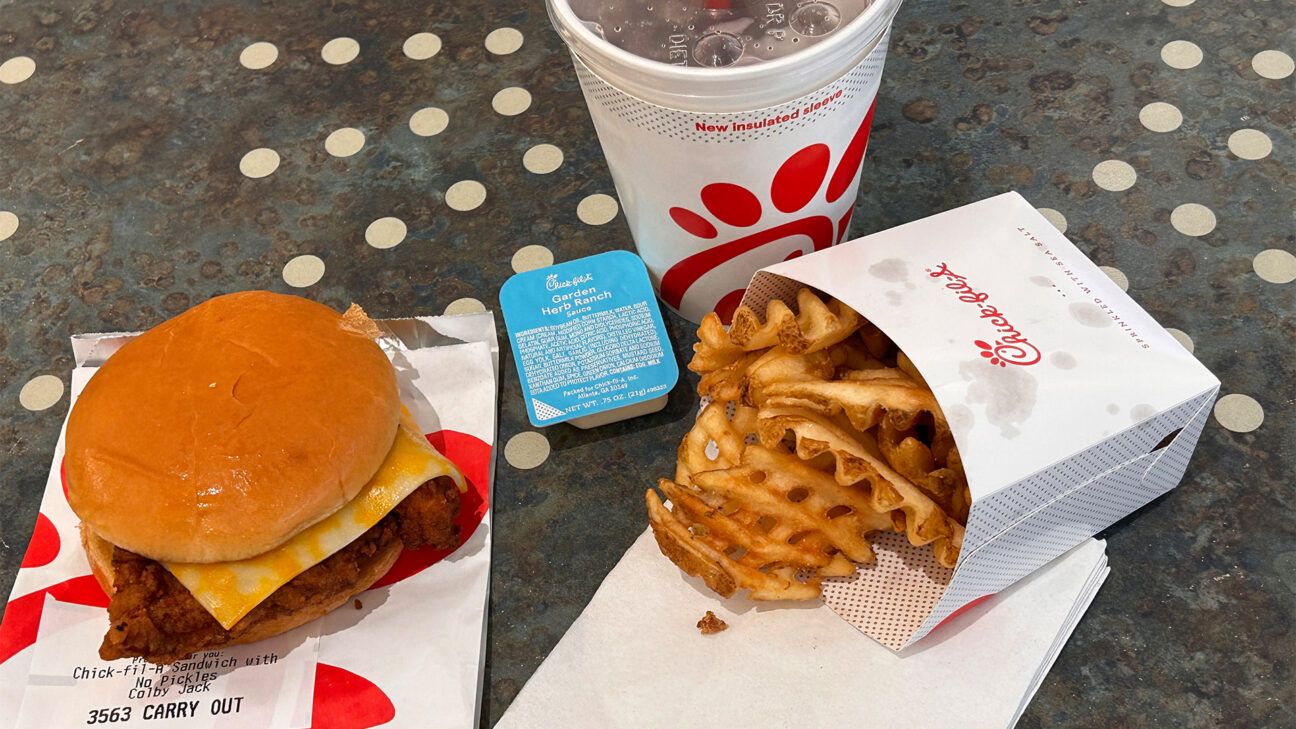
- Chick-fil-A has backtracked on its pledge never to use antibiotics in its chicken.
- From spring, the restaurant is switching from a “No Antibiotics Ever (NAE)” commitment to a “No Antibiotics Important To Human Medicine (NAIHM)” approach.
- Antibiotics are often used in livestock production to promote growth and protect against diseases.
- However, there are significant concerns about the health effects on humans.
- Experts say antibiotic-raised meat contributes to antibiotic resistance and gut problems
Fast food chain Chick-fil-A has updated its no-antibiotics-in-chicken pledge.
The brand announced that due to supply chain shortages, they are shifting from “No Antibiotics Ever (NAE) to No Antibiotics Important To Human Medicine (NAIHM).”
The changes will come into effect in spring.
On its website, Chick-fil-A explains that “No Antibiotics ever” means no antibiotics of any kind were used in raising the animal.
Meanwhile, “NAIHM restricts the use of those antibiotics that are important to human medicine and commonly used to treat people, and allows the use of animal antibiotics only if the animal and those around it were to become sick.”
Despite this change, Chick-fil-A says, “We are constantly evaluating our approach to animal well-being to ensure it is consistent with or exceeds industry standards.”
Antibiotics are often used in livestock production to stave off disease in animals and promote rapid weight gain.
However, there are concerns that the practice contributes to drug resistance and other health issues in humans.
Rising concerns about antibiotic-resistant bacteria
Nutritionist GQ Jordan says it’s “quite disheartening” to see Chick-fil-A reversing its commitment to never use antibiotics in chicken.
“This decision might not just affect them but could encourage a shift in the entire industry away from prioritizing the well-being of animals and the health of consumers,” she points out.
Jordan says that the use of antibiotics in livestock production has “significant” negative effects for both animal welfare and human health and describes these risks as “real” and growing.”
The most pressing health concern, in her opinion, is the emergence of antibiotic-resistant bacteria.
“These are bacteria that have evolved the ability to survive even when exposed to antibiotics, leading to infections in humans that are increasingly difficult to treat,” Jordan explains.
In essence, this resistance could bring with it a future where many of our current antibiotics lose their effectiveness.
Emma Shafqat, a pediatric dietitian, shares similar concerns.
“There are already certain strains of bacteria that are now resistant to many different types of antibiotics, for example, MRSA, Clostridium difficile, and the bacteria that causes multi-drug resistant tuberculosis,” she says.
“However, the biggest concern is that new strains of bacteria will develop, and we will not be able to treat them.”
How antibiotics can affect the gut
Another issue is the effect antibiotics have on the gut.
“Antibiotics dramatically upset the composition of the gut microbiota, reduce short-chain fatty acid availability, and alter glucose homeostasis,” says Shafqat.
Jordan agrees.
“The delicate ecosystem of the gut – known as the gut microbiome – plays a key role in our immune response, digestion, and even our mental health, due to the gut-brain axis,” she says. “Disruptions here can lead to a host of health issues, from increased infection susceptibility to changes in mood and cognitive function.”
Shafqat says it’s difficult to say just how serious the risk antibiotic-raised meat is to human health and believes more research is needed.
However, she points to an older review published in 2004 that noted that antibiotic-resistant bacteria from food animals exposed to antibiotics could spread via food to humans and cause human infections but stated that the actual danger was small.
Healthier choices you can make regarding chicken and other meats
You might be wondering what the alternative is. If you’re a meat-eater and plan on remaining so, how do you know how your meat was raised? And is there a way to reduce your consumption of antibiotic-raised meat specifically?
Shafqat says there is no reliable way for consumers to avoid buying food produced with irresponsible antibiotic use.
However, if you’re going to eat meat, opting for grass-fed, organic, and free-range meat, whether it’s chicken, beef, turkey, or pork, may be a better choice.
When buying meat at the supermarket, there are specific labels for which to look.
“If you’re looking to avoid meat from animals treated with antibiotics, look for labels like “Raised Without Antibiotics” or organic certifications,” Jordan advises.
“These products are more likely to come from animals that weren’t given antibiotics, offering a safer choice,” she explains.
If you regularly eat at chain restaurants, like Chick-fil-A, for example, it might be worth doing your research before you visit.
Check out the restaurant’s website to find out how the meat they use is raised.
Takeaway
It’s common practice in livestock production for animals to be treated with antibiotics.
However, the health effects on humans may have potentially serious side effects.
Over time, exposure to antibiotic-raised meat may contribute to antibiotic resistance, meaning illnesses are harder to treat. It can also impact your gut.
To reduce these risks, you can opt for grass-fed, free-range meat that has been raised without antibiotics instead.
Why Chick-fil-A Is Allowing Antibiotics in Chicken and How It May Affect You
Source: Pinoy Lang Sakalam



0 (mga) komento:
Mag-post ng isang Komento